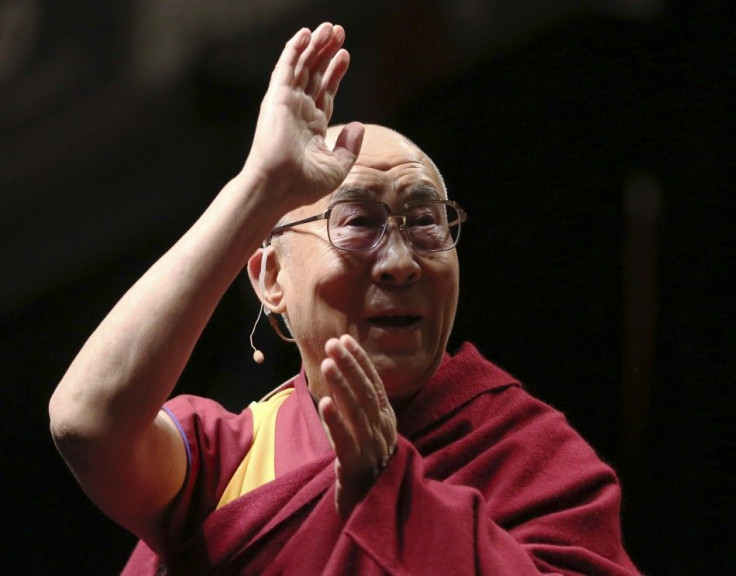China Criticizes UK Prime Minster Cameron For Meeting With Dalai Lama

Chinese Chinese Vice Foreign Minister Song Tao summoned British Ambassador Sebastian Wood to the Foreign Ministry Tuesday to file an official complaint against British Prime Minister David Cameron and Deputy Prime Minister Nick Clegg after they met with the 14th Dalai Lama, the exiled spiritual leader of Tibetan Buddhists, on Monday in London.
China, which refuses to recognize the Dalai Lama's authority as a Tibetan leader, decried the meeting, especially in light of recent criticisms he has leveled against Beijing.
The Dalai Lama was in London to accept the Templeton Prize, which honors those who have made a significant spiritual contribution to the world. Before the awards ceremony, the Tibetan leader told reporters that China was mistreating its own citizens, not just Tibetans.
Look at China now, the moral crisis, corruption -- immense, he said.
The Dalai Lama's meeting with Cameron and Clegg took place behind closed doors at St. Paul's Cathedral. Cameron's spokesman Steve Field noted that the Dalai Lama was an important religious figure who had visited with London officials several times in the past.
We do not want to see our relationship with China disrupted by the visit of the Dalai Lama, he added.
But China's Ministry of Foreign Affairs released a statement on Tuesday saying that Cameron's meeting with the Dalai Lama constituted serious interference in China's internal affairs. It has impaired China's core interest and hurt the feeling of the Chinese people. China must express its strong dissatisfaction and determined opposition.
The Dalai Lama frequently uses his international appearances to raise awareness of the struggles within Tibet, a Himalayan plateau that has sought greater autonomy since it was seized by China's military more than 50 years ago. Responding to increased Chinese repression of Buddhism and Tibetan cultural traditions in recent months, many young Tibetans have protested by setting themselves on fire.
At least 32 Tibetans have engaged in self-immolation so far this year; most have died.
The 14th Dalai Lama grew up in Tibet but fled to India in 1959 after a failed uprising. He retired from politics last year, but remains a spiritual leader.
Beijing considers the 14th Dalai Lama a separatist, calling him the epitome of pro-Tibet-independence elements and a political exile committed to secessionist activities under the disguise of religion. China is resolutely opposed to his international activities whatever the title or the professed purpose, or contacts with him by foreign political leaders and officials whatever the purported form.
The statement follows a similar note of censure on Monday. The Dalai Lama had claimed that the Chinese government may have trained women to assassinate him using poison, but Foreign Ministry spokesman Hong Lei dismissed the allegation.
The Dalai always wears religious clothes while carrying out anti-China separatist activities in the global community, spreading false information and deceiving the public, he said.
Tuesday's official statement calls for British authorities to adjust their diplomatic priorities. There must be concrete actions on the British side to create enabling conditions for the sound development of bilateral relations, it said.
In recent years, Chinese officials have criticized several heads of state for holding meetings with the Dalai Lama, including U.S. President Barack Obama, who hosted him at the White House in 2010, and former French President Nicolas Sarkozy, who met him in Poland in 2008.
© Copyright IBTimes 2024. All rights reserved.






















